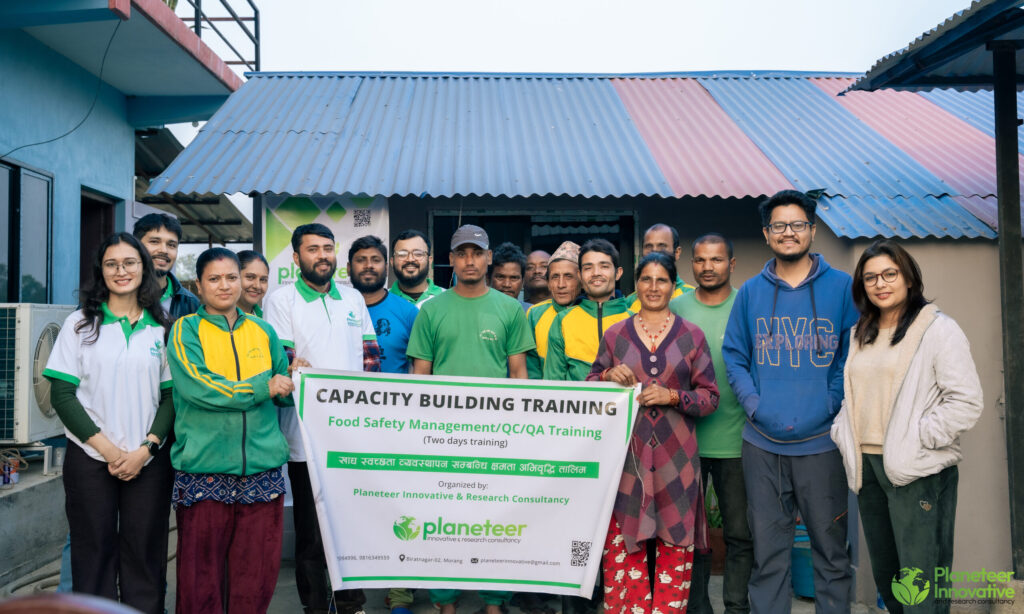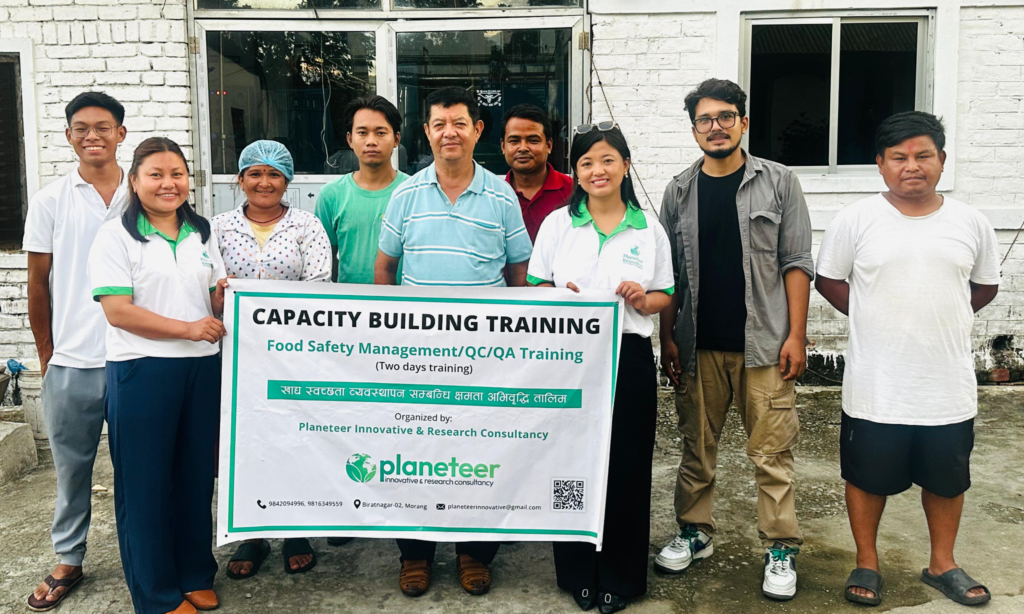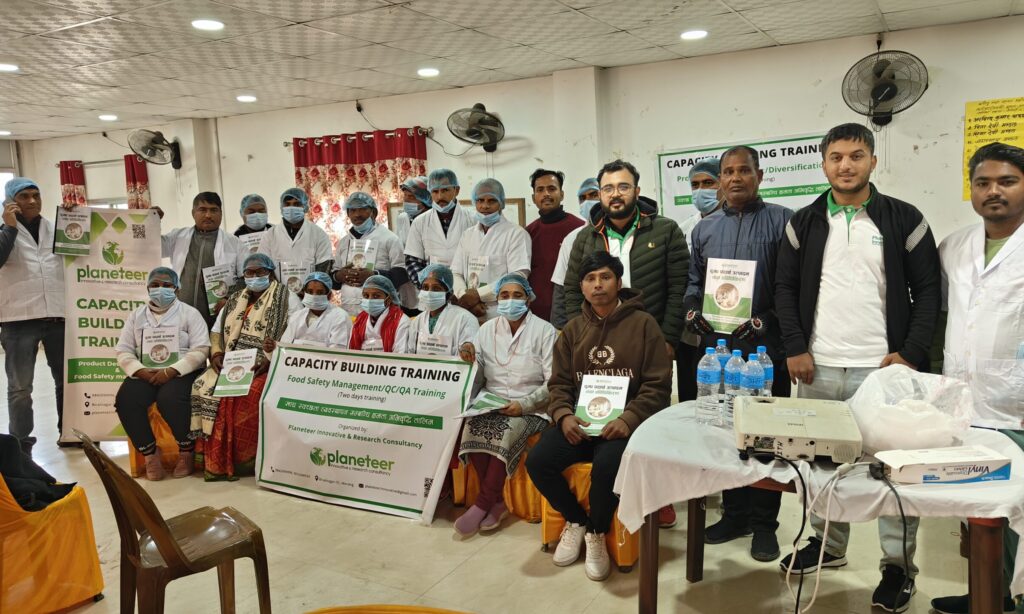The beverage and food industry is a complex network that involves a range of activities and stakeholders working together to supply the food and drinks consumed by people worldwide. It starts with agriculture, including the cultivation of crops and raising livestock, and extends to the manufacturing of farm equipment, agrochemicals, and beverage production. The industry covers food and beverage processing, packaging, and labeling, as well as storage, distribution, and regulatory compliance. Beyond these, it includes financing, marketing, retailing, and catering, all crucial for getting food and beverages from producers to consumers. Additionally, the food and beverage industry involves research and development to drive innovation and education to meet evolving consumer needs. As it adapts to trends and faces global challenges, the industry plays a vital role in ensuring food and beverage safety, quality, and availability.
Importance of Food Industry in Nepal
- Economic Contribution: The industry significantly contributes to the economy by creating millions of jobs and generating substantial income. It drives economic growth through various stages, from agriculture and manufacturing to retail and services.
- Food Security and Nutrition: It ensures the availability of diverse and nutritious food and beverages, which is crucial for meeting the dietary needs of populations and improving public health.
- Innovation and Technology: Advances in technology within the food industry lead to better food processing, packaging, and safety measures, enhancing product quality and sustainability while driving industry progress.
- Cultural Significance: Food and beverages play a key role in cultural traditions and social practices. The industry helps preserve cultural heritage and introduces new dining experiences, enriching societies.
- Sustainability and Environmental Impact: The industry is increasingly adopting sustainable practices, such as reducing waste and conserving resources, to minimize its environmental footprint and promote eco-friendly production methods.
- Tourism and Hospitality: By offering unique culinary experiences and local food and beverages, the industry boosts tourism and enhances the travel experience, contributing to the growth of the hospitality sector.
- Health and Wellness: The industry responds to growing consumer demand for healthier options by developing products that promote well-being, including organic, low-calorie, and functional foods and beverages.
What is the current scenario of Food Industry in Nepal?
The beverage and food industry in Nepal is a crucial sector that supports the nation’s economy and daily life. It encompasses various stages, from agriculture and beverage production to the final consumer. The industry begins with traditional farming practices, including the cultivation of staple crops like rice, maize, and wheat, as well as the raising of livestock. Despite its rich agricultural base, the sector faces challenges such as limited modern technology and infrastructure. Processing and packaging facilities for both food and beverages are developing but are still relatively underdeveloped compared to global standards. Distribution networks are expanding, with efforts to improve both local and export markets. The industry also involves regulatory bodies working to ensure food and beverage safety and quality. Recent trends include a growing focus on organic farming, beverage innovation, and value-added products, reflecting a shift towards healthier and more sustainable food and drink choices. As Nepal continues to invest in infrastructure and technology, the beverage and food industry has the potential to enhance its contribution to the economy and better meet the needs of its population.
Objectives related to Food and Beverage sector
- Enhancing Food Security: To ensure a stable and reliable supply of food and beverages by improving agricultural productivity, beverage production, and distribution systems.
- Promoting Sustainable Agriculture: To support environmentally friendly farming practices and sustainable resource use, reducing the impact on natural resources.
- Improving Food Quality and Safety: To implement and adhere to food and beverage safety standards and quality control measures, ensuring that food and drink products are safe for consumption.
- Supporting Rural Development: To create job opportunities and economic growth in rural areas by developing local agricultural practices, beverage production, and food processing industries.
- Encouraging Value Addition: To increase the economic value of raw agricultural products through food processing and beverage packaging, enhancing their marketability and profitability.
- Expanding Market Access: To improve distribution networks and access to both domestic and international markets, increasing the reach of Nepali food and beverage products.
- Fostering Innovation and Technology: To invest in modern technology and research to improve production methods, processing techniques, and overall efficiency in the beverage anf food industry.
Challenges and opportunity for Food and Beverage Industry in Nepal
Challenges
- Infrastructure Limitations: Inadequate infrastructure for transportation, storage, and processing hampers the efficiency of food and beverage distribution and reduces the quality of food and drink products.
- Limited Technology Adoption: Many areas of the food and beverage industry lack modern technology and advanced processing methods, affecting productivity and product quality.
- Food Safety and Quality Issues: Ensuring consistent food and beverage safety and quality can be challenging due to insufficient regulatory enforcement and outdated practices.
- Seasonal Variability: Dependence on seasonal agricultural cycles leads to fluctuations in food supply and prices, impacting availability and affordability of both food and beverages.
- Market Access and Distribution: Limited access to both domestic and international markets and inefficient distribution networks can restrict the growth and profitability of beverage and food industry.
- Resource Constraints: Challenges such as limited access to capital, lack of skilled labor, and insufficient research and development can hinder industry growth and innovation.
- Climate Change and Environmental Impact: Changing climate conditions and environmental degradation pose risks to agricultural productivity and beverage production, affecting food security.
Opportunities
- Growing Domestic Market: Increasing urbanization and rising incomes present opportunities to meet the demand for diverse and higher-quality food and beverage products.
- Export Potential: There is potential to expand exports of Nepali food industry products, including organic and specialty items, to international markets.
- Technological Advancements: Adoption of modern technologies in farming, beverage production, processing, and packaging can improve efficiency, product quality, and market competitiveness.
- Sustainable Agriculture: Embracing sustainable farming practices and environmentally friendly beverage production can enhance productivity, preserve natural resources, and meet growing consumer demand for eco-friendly products.
- Innovation and Research: Investing in research and development can lead to new product innovations, improved farming techniques, and enhanced food and beverage safety measures.
- Tourism and Culinary Experiences: Leveraging Nepal’s rich cultural heritage and cuisine to develop food tourism, beverage tastings, and culinary experiences can attract visitors and generate additional revenue.
- Organic and Healthy Foods: Growing consumer awareness about health and wellness creates opportunities for organic and nutritious food and beverage products.
Future of Food and Beverage Industry in Nepal
The future of the food and beverage industry in Nepal holds significant potential for growth and transformation. Key aspects shaping this future include:
- Technological Integration: The adoption of advanced technologies, such as precision farming, modern food and beverage processing equipment, and digital supply chain solutions, is expected to enhance productivity, efficiency, and quality across the food industry.
- Sustainable Practices: Increased focus on sustainable and environmentally friendly practices will likely drive changes in agriculture, beverage production, and food manufacturing, including the promotion of organic farming, waste reduction, and resource conservation.
- Expansion of Market Access: The growth of both domestic and international markets presents opportunities for Nepali food industry products, with potential for increased exports and improved distribution networks.
- Innovation and R&D: Investment in research and development will lead to innovation in food industry and beverage products, processing techniques, and agricultural practices, addressing evolving consumer preferences and market demands.
- Improved Infrastructure: Ongoing development of infrastructure, including better transportation, storage facilities, and processing plants, will enhance the efficiency and reliability of the food and beverage supply chain.
- Consumer Trends: Growing consumer interest in health, nutrition, and convenience is expected to drive demand for healthier food and beverage options, functional foods, and ready-to-eat products.
- Government Initiatives: Supportive government policies and programs aimed at boosting the agricultural sector, promoting food and beverage safety, and encouraging investment will play a crucial role in shaping the industry’s future.
- Local and Global Integration: Strengthening local food systems while integrating with global markets will create opportunities for growth and collaboration, benefiting both small-scale producers and larger enterprises.
- Educational and Training Opportunities: Enhancing education and training for food industry professionals will improve skills and knowledge, driving better practices and innovations within the sector.
Food Industry examples in Nepal
The food and beverage industry in Nepal includes agriculture, food processing, beverage production, packaging, and distribution. Local farmers, processing companies like Nepal Food and Agro Pvt. Ltd., beverage manufacturers, and packaging firms such as K.L. Packaging Pvt. Ltd. play key roles. Retailers like Big Mart and online platforms like Daraz Nepal serve consumers, while restaurants and catering services offer dining and beverage options. Planeteer Innovative supports this sector through market research and data analysis, helping to drive growth and innovation in the beverage and food industry.





